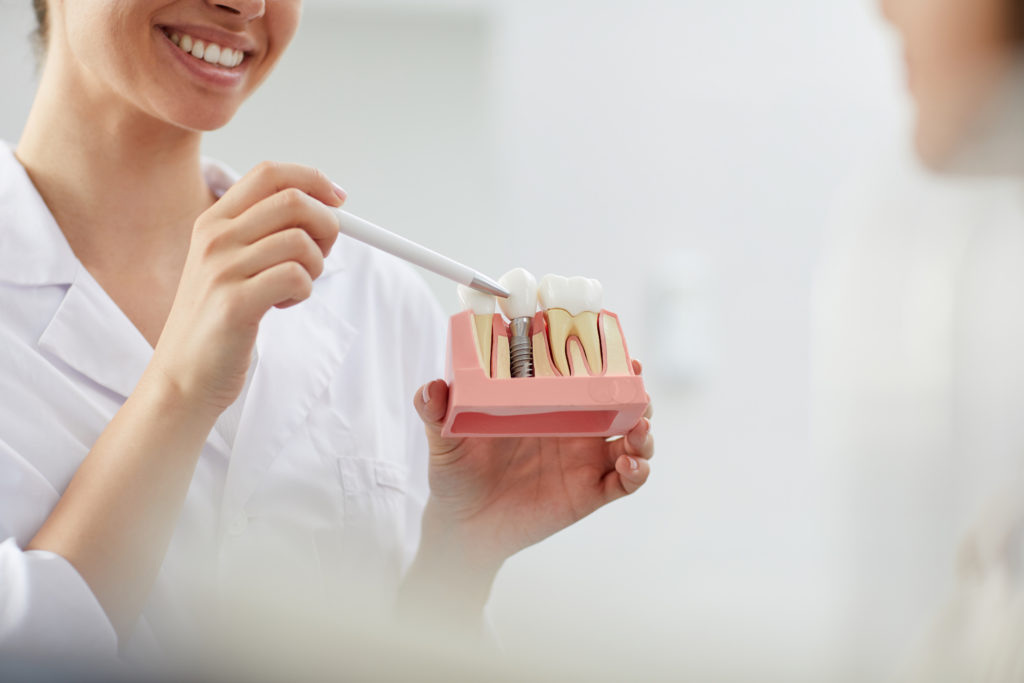Sometimes, in spite of taking the very best care of your teeth, a minor accident or an unfortunate incident with hard foods may leave you with a broken tooth. Depending on the kind of injury, an individual with a broken tooth may suffer from severe toothache or have no pain at all. It is always advisable to seek professional advice from your family dentist in any case of dental injury. Under no circumstances should an individual try to fix their broken tooth at home.
Types of Broken Teeth & Their Treatments
Cracked Tooth:
A crack in a tooth begins from the chewing surface of the tooth and extends vertically upwards. Cracked teeth often cause severe pain if the crack is too deep and wide, and involves the pulp of the tooth. If the crack is small, a patient may not even notice it except for experiencing intermittent discomfort. Irrespective of whether the patient feels pain or not, it is important to consult a dentist immediately for a cracked tooth since even a small crack can form a pathway to infection in the tooth pulp. If left untreated, a cracked tooth will progressively get worse and may even result in loss of the tooth.
If the crack is restricted to just the outer enamel, it is known as a craze line. Craze lines are very common in adults and do not require any form of treatment. Larger cracks that do not go deep into the tooth and are not symptomatic can be fixed with the help of dental bonding material. These are tooth-colored fillings that bond to the teeth and help in its restoration.
If the pulp of the tooth has been compromised because of a broken tooth, a root canal treatment becomes necessary. This is followed by the placement of a dental crown or a veneer on the tooth to restore its appearance and functionality.
Often times, a severe or long-term crack may result in a split tooth, which has separate fragments of the tooth that cannot be saved. In such cases, extraction of the tooth is usually the only course of treatment. The same treatment applies to severe cracks that may occur in the roots of the tooth; such teeth are usually not salvageable either.
Home remedies that claim to fix cracked teeth naturally usually do not hold much substance and should preferably be ignored.
Chipped Tooth:
A chip in a tooth can be of varying degrees. The treatment for a chipped tooth depends on the size of the broken fragment. A slightly chipped tooth or a fractured cusp may be restored simply with a dental bonding material. While the repair usually results in flawless results, the bonding material may need to be replaced at periodic intervals since it may wear away with time.
Larger chips that do not involve the pulp of the tooth may require the placement of dental crowns or veneers to cover the damaged segment of the tooth and to protect the remaining structure. If the tooth fracture is severe and has resulted in damage to the pulp as well, root canal treatment becomes necessary and is usually followed by a dental crown or veneer.
Cost of Fixing a Broken Tooth
The dental costs involved with fixing broken teeth depends on the treatment your dentist deems fit for you. Procedures like dental bonding for small cracks or chips may not be much, but as the number of teeth and the scale of treatments increase, so does the cost. Root canal treatments, dental crowns, and veneers are usually quite costly but are also covered by most dental insurance plans.

To know more about the best-suited treatment for you and any other queries, get in touch with our expert team at Le Sueur Family Dental.

